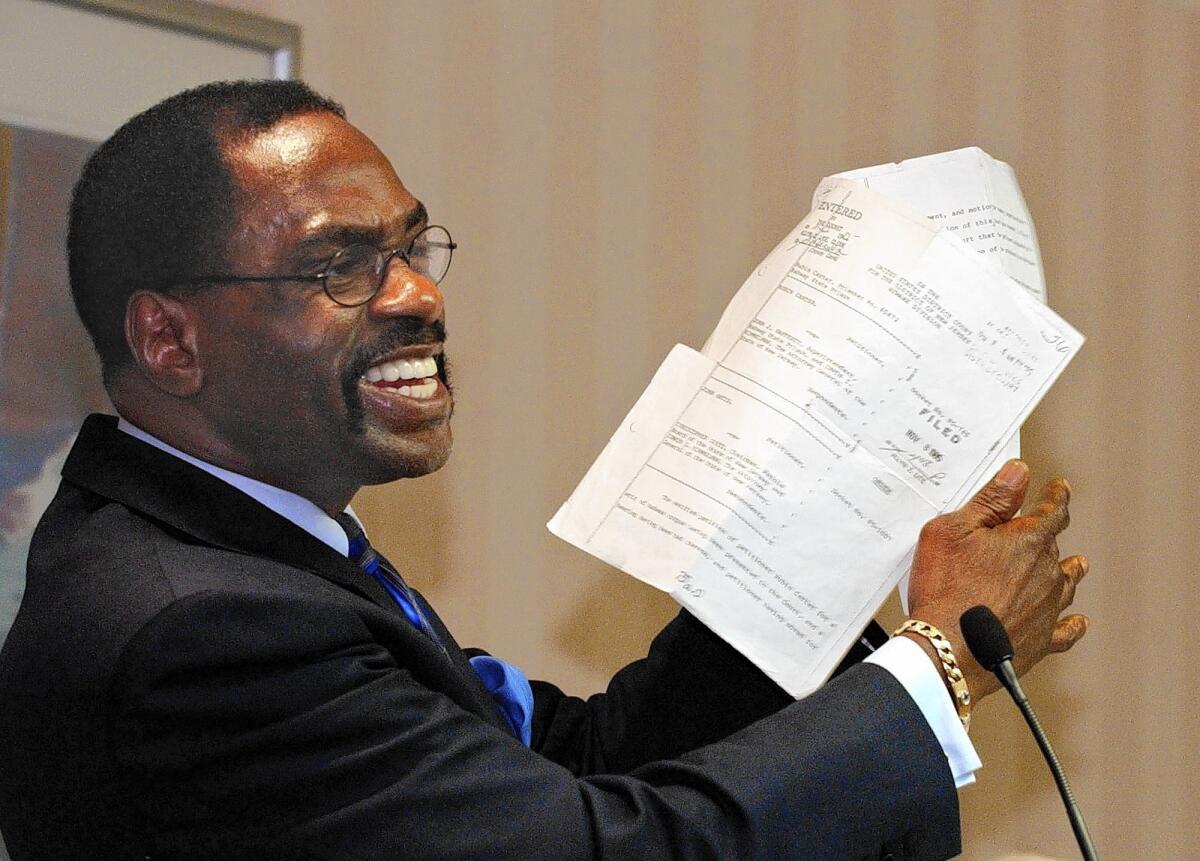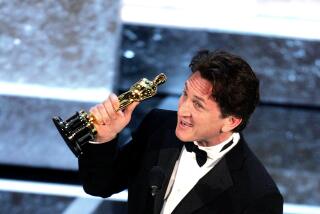How Rubin ‘Hurricane’ Carter rewrote Oscar campaigning

Rubin “Hurricane” Carter, who died Sunday at age 76, represented one of the most famous miscarriages of justice in recent American history: He served 19 years in prison for three murders before his convictions were set aside.
But the former middleweight boxer also figured prominently in a Hollywood drama, this one focused on how negative publicity can destroy an Academy Awards campaign and how studios in the years that followed mastered the art of heading off Oscar criticism before it was too late.
The 1999 movie, directed by Norman Jewison, looked on paper to have awards merit in excess. Jewison had made “Moonstruck,” “Fiddler on the Roof” and “In the Heat of the Night,” and the tale of how Carter (played by Denzel Washington) was railroaded and later freed was a compelling, true-life tale of never giving up.
PHOTOS: Stars who turned down, or were turned down for, ultimately famous roles
But screenwriter Armyan Bernstein, a novice who was much better known as a producer, took a number of liberties in adapting the books “The 16th Round” and “Lazarus and the Hurricane.” The screenplay and movie not only distorted Carter’s boxing history, suggesting he lost a famous match to Joey Giardello because of racist judges but also depicted the boxer as nearly saintly, even though he had served time for muggings. The movie also misstated the racial composition of a jury that convicted Carter.
Soon after the film was released, New York Post columnist Jack Newfield blasted the picture as a “horrible falsification of history.” Then ex-New York Times reporter Selwyn Raab, whose original reporting uncovered evidence that played a role in overturning Carter’s original conviction, called the film a “fairy tale” that rewrote history “for dramatic effect.”
Distributor Universal Pictures was slow to respond to the attacks, waiting three weeks to respond to Raab’s broadside, and the film was slowly but inevitably buried by its naysayers.
Rather than make a strong showing at the Oscars, “The Hurricane” was nominated only once, for best actor for Washington, who lost to Kevin Spacey from “American Beauty.”
“Sometimes I wish we’d made a movie about Julius Caesar,” Universal publicity chief Terry Curtin said at the time. “At least none of his Roman legions are around to complain about whether every little detail of his life is accurate or not.”
PHOTOS: Box office top 10 of 2013 | Biggest flops of 2013
But the lesson was learned.
Two years later, Universal released Ron Howard’s “A Beautiful Mind,” which took a number of liberties in relating the life of mathematician John Nash (Russell Crowe). Among the items excised or minimized from his life in screenwriter Akiva Goldsman’s screenplay: Nash’s arrest for indecent exposure, his homosexuality, his fathering an illegitimate child and his divorce.
Universal was ready for the assault and convened an almost daily “war room” to respond quickly to challenges. When the Oscars rolled around, “A Beautiful Mind” won four Oscars, including best picture.
Not every studio afterward has been able to emulate Universal’s effort — Sony Pictures failed to control the debate over the factual legitimacy of 2012’s “Zero Dark Thirty,” and the movie won just one trophy, for sound editing.
But to this day, those who don’t remember the history of “The Hurricane” are doomed to repeat it.
ALSO:
Much to love in live reading of Quentin Tarantino’s ‘Hateful Eight’
Danny Boyle in talks for Steve Jobs movie, possibly with DiCaprio
Tribeca 2014: Joss Whedon will make new movie available immediately online
More to Read
Only good movies
Get the Indie Focus newsletter, Mark Olsen's weekly guide to the world of cinema.
You may occasionally receive promotional content from the Los Angeles Times.







